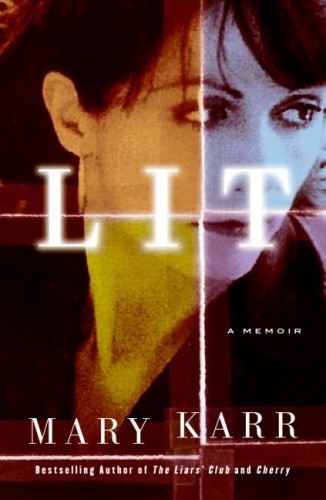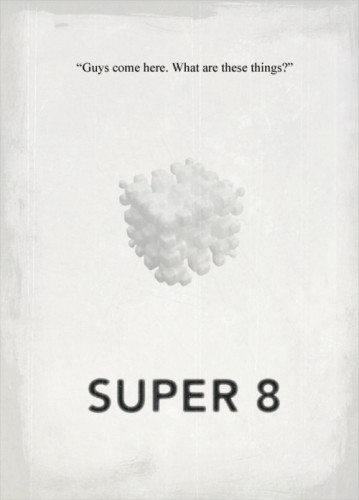
Reading Mary Karr’s fantastic memoir Lit, one quote in particular stuck out to me as beautifully describing a tendency we humans have to fall into more limited emotional ranges:
…anything worth doing could be undertaken later. Paint the apartment, write a book, quit booze, sure: tomorrow. Which ensures that life gets lived in miniature. In lieu of the large feelings – sorrow, fury, joy – I had their junior counterparts – anxiety, irritation, excitement.
 I don’t want to read into Karr’s emotional experiences, but for me this passage elucidates the emotional life lived in times when the Law, or demand to achieve, is looming over me. Sorrow, fury, and joy are responses to something that happens outside of yourself, while anxiety is merely anticipated failure/guilt for yourself, irritation is the carefully constructed self, with its opinions and ambitions, chafing against the world, and excitement is the brief stimulation of something that is either surface-level, aesthetically pleasurable (which there’s nothing wrong with) or the jolt of something that’s temporarily fulfilling, affirming.
I don’t want to read into Karr’s emotional experiences, but for me this passage elucidates the emotional life lived in times when the Law, or demand to achieve, is looming over me. Sorrow, fury, and joy are responses to something that happens outside of yourself, while anxiety is merely anticipated failure/guilt for yourself, irritation is the carefully constructed self, with its opinions and ambitions, chafing against the world, and excitement is the brief stimulation of something that is either surface-level, aesthetically pleasurable (which there’s nothing wrong with) or the jolt of something that’s temporarily fulfilling, affirming.
When we’re constantly measuring ourselves against a certain standard, it creates pressure to perform, pressure to construct an identity, and the occasional rush of standards met – “excitement.” The substitution of emotions about the world for narrower emotions about our “failings and flailings” is the psychological picture of Augustine/Luther’s image for man curved in on itself – an emotional life lived in reference to itself is our natural response to the Law, and it can buffer us against the less easily-controllable, “bigger” emotions.
Though self-justification before the Law is a fitting theological picture for the state of mind Karr describes, the psychological picture is perhaps more nuanced, looking as much or more like a circumscribed self than a justifying one. The language of justification doesn’t quite bring out the habit-forming part of self-referential emotions, the truth that after living looking inward for a long enough time, passive receptivity and openness to the “big” emotions becomes impossible; the fact a different state of mind exists, unthinkable.
Poet Ted Hughes wrote a letter to his son, Nick, about protecting our true, emotionally vulnerable self (an “inner child” perennially subject to sorrow, fury, joy) with an outer, artificial self:
Everybody tries to protect this vulnerable two three four five six seven eight year old inside, and to acquire skills and aptitudes for dealing with the situations that threaten to overwhelm it. So everybody develops a whole armour of secondary self, the artificially constructed being that deals with the outer world, and the crush of circumstances. And when we meet people this is what we usually meet. And if this is the only part of them we meet we’re likely to get a rough time, and to end up making ‘no contact’.
 Paul Zahl described this secondary self as “shaken, rattled, bracing” – rattled by threats to identity, bracing for the next challenge, shaken by the world’s near-constant deconstruction of the artificial self’s projects and ideas. The emotional life lived under the Law, self-reference, curved-in-ness, or however you want to describe it is nuanced, but not nearly so much as the life of the child. It’s easy to describe, but its alternative is nearly impossible, because it necessarily comes from beyond ourselves. Deliverance from self-consciousness and the smaller emotions it feeds is indescribable because the only peace we can ever hope to have is peace that “passeth” any human understanding.
Paul Zahl described this secondary self as “shaken, rattled, bracing” – rattled by threats to identity, bracing for the next challenge, shaken by the world’s near-constant deconstruction of the artificial self’s projects and ideas. The emotional life lived under the Law, self-reference, curved-in-ness, or however you want to describe it is nuanced, but not nearly so much as the life of the child. It’s easy to describe, but its alternative is nearly impossible, because it necessarily comes from beyond ourselves. Deliverance from self-consciousness and the smaller emotions it feeds is indescribable because the only peace we can ever hope to have is peace that “passeth” any human understanding.
We could describe it, as does Ted Hughes, with suffering that overwhelms our coping so much that we’re left naked and vulnerable; the child is forced out. Along similar lines, Luther calls it Thesis 18 – that a man must utterly despair of himself before he/she is ready to receive the grace of God. Or, with Kierkegaard, we could examine the role of anxiety and despair in producing the sort of passion that’s requisite for belief. In all of these, there’s the promise that even small emotions point to an end of the self; our projects always direct us to something bigger and outside ourselves, no matter how paltry, by accusing us (Jn 5:45b) of not being able to cope, to manage, to get it all done.
But the best description for how this changes is something breaking in from outside ourselves – Percy’s “news from across the sea”, Super 8‘s aliens as the answer to suffering, Mozart’s Clarinet Concerto or, equally, Italo-Pop’s robotic voices. All four blindside us, and all pry open the closed circle just the smallest bit. Good News means an exhaustible store of things in the world that can break through the small emotions, pointing to one.
PS: Mary Karr will be speaking at our 2013 Spring NYC Conference in April. Register here!

COMMENTS
3 responses to “Mary Karr, Mini-Lives, and News From Across the (Human/Robot Divide)”
Leave a Reply













Excellent post! I should probably read her book.
Enjoy MK’s poetry, but I must disagree about Lit. I couldn’t finish it…too much of a drunkalogue IMO, and disappointingly self absorbed. Wish she would’ve spent more time getting sober!
Jim, you missed out! The second half of the book is much stronger than the first and really stands in high relief when paired with the drunkologue aspects of the text. I had the same thought though that the front half is a little long winded, and that it is really important to get to the second half. Maybe you could go back and just read the second half?